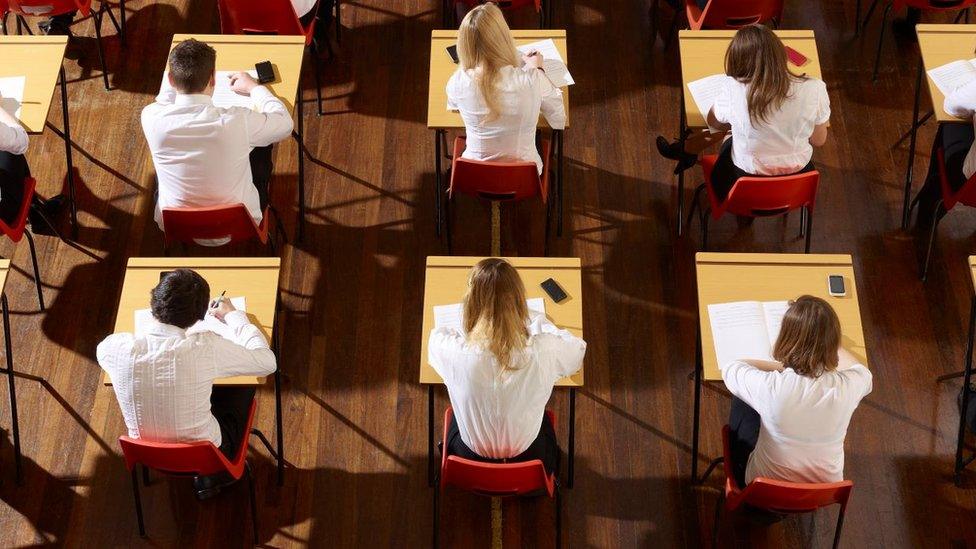Pisa: Wales slumps to worst school test results
- Published
- comments
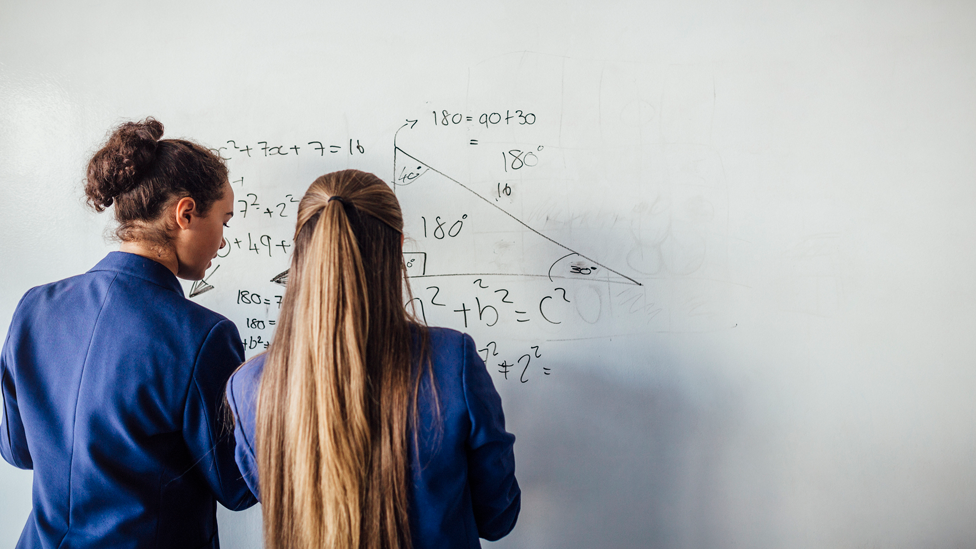
The maths results saw a second successive improvement in 2018
Wales' performance has fallen to its lowest level ever in maths, reading and science tests taken by 15-year olds.
In the first international Pisa assessments since Covid, Welsh scores were the lowest of all UK nations and the results gap has widened.
The tests were taken in 81 countries in 2022 and are seen as an important measure of education systems.
Education Minister Jeremy Miles said the pandemic had derailed some improvement in literacy and numeracy.
He said plans had been launched to raise standards.
What do the results show?
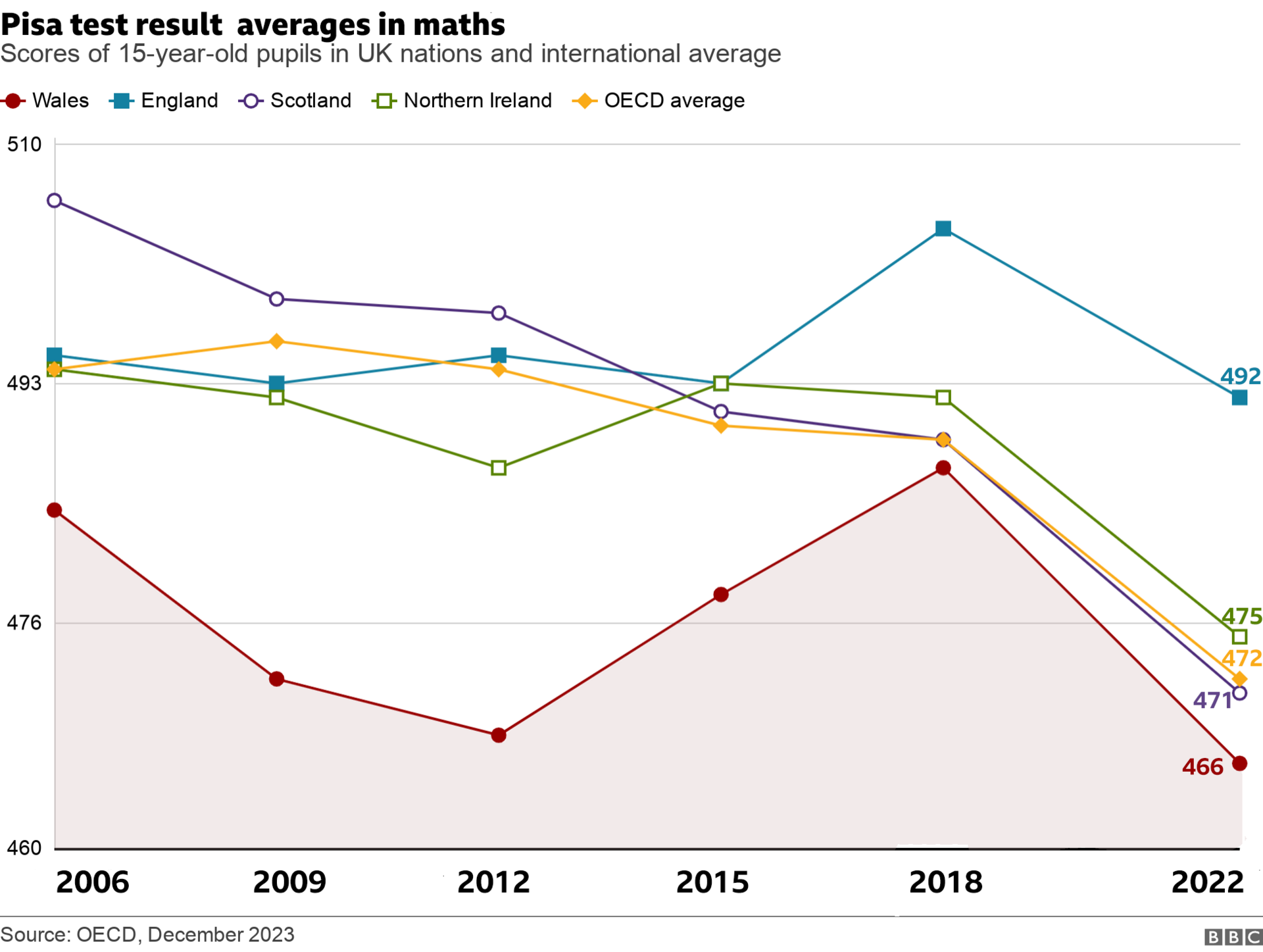
In maths, Wales' average score was 466 - down from 487 in 2018.
The drop in maths is equivalent to a whole year of study, said the Organisation for Economic Co-operation and Development (OECD), which runs the tests.
All UK nations saw a slump in maths, but it was the steepest in Wales.
Wales is ranked just above the United States, the same as Malta, and just below Norway and Vietnam.
Singapore is at the top (average score 575), followed by Macao and Taiwan.
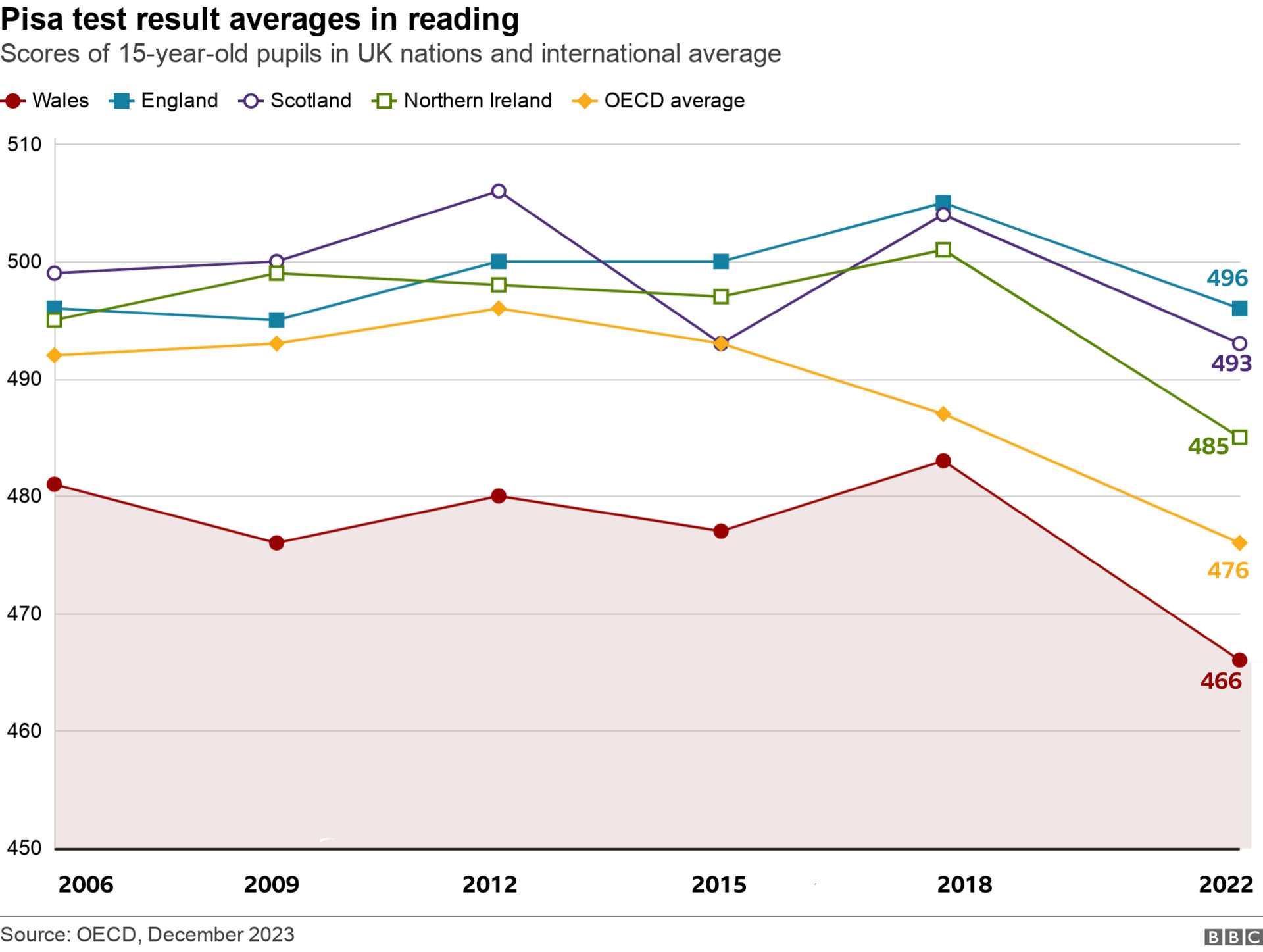
In reading, the average score fell from 483 to 466.
All other UK nations had better results than the international average. In Wales, it was more than 3% below average.
Singapore is top again (a score of 543), followed by Ireland and Japan (516). Wales is ranked between Slovenia and the Netherlands.
The Pisa results for science saw the average score in Wales drop from 488 to 473 - a much larger fall than in the other UK nations.
Singapore (561), Japan and Macao are ranked at the top. Wales is ranked just behind Turkey in science and ahead of Vietnam and Malta.
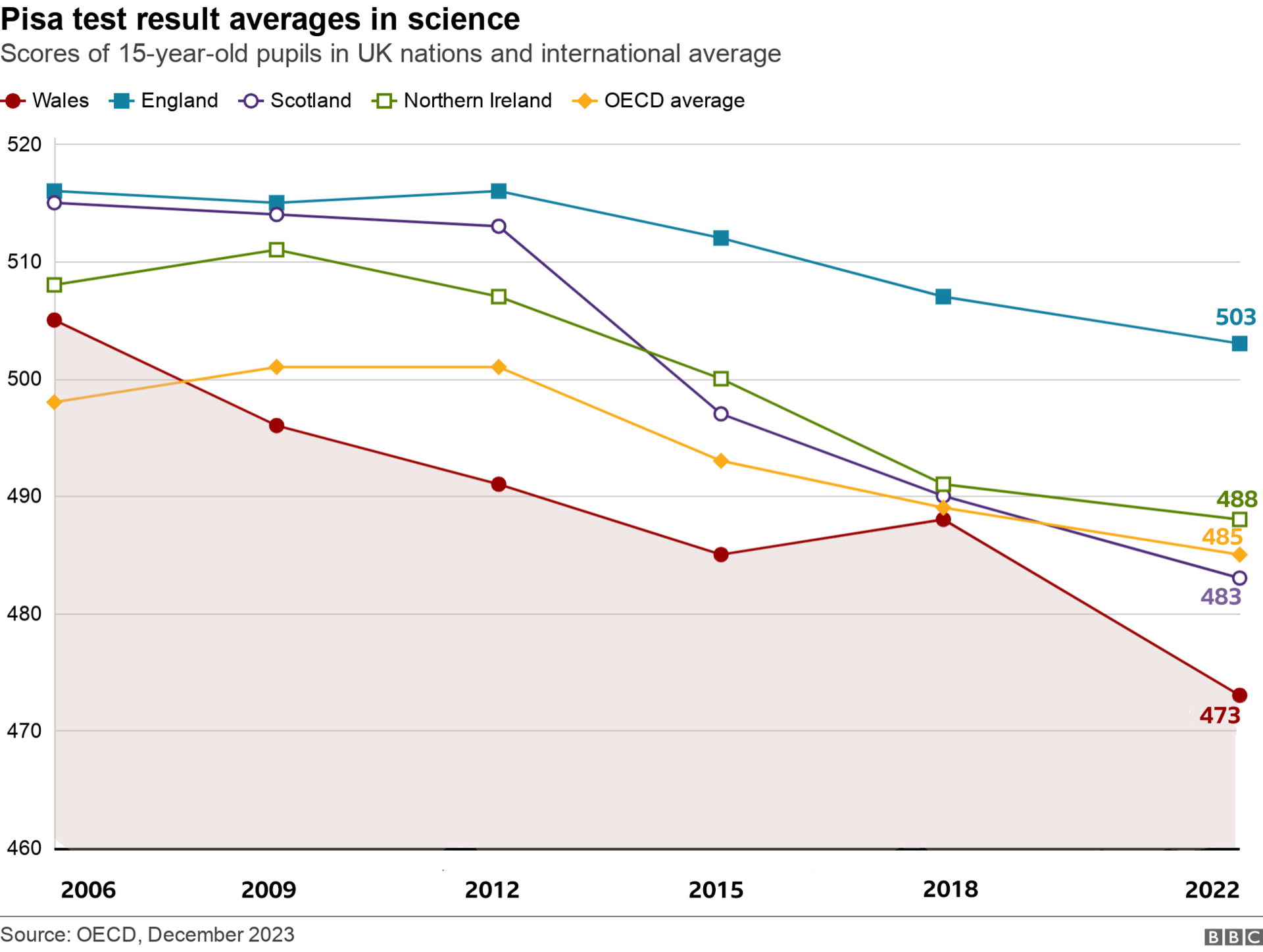
Overall, the OECD said there was "quite a marked drop" in results across the countries that took part in Pisa tests in 2022.
The assessments are usually held every three years, but the tests scheduled for 2021 were postponed for a year because of the pandemic.
They measure the key knowledge and skills of pupils who are nearing the end of their compulsory education.
There were lower scores in all UK nations in 2022, but Wales' results were the lowest.
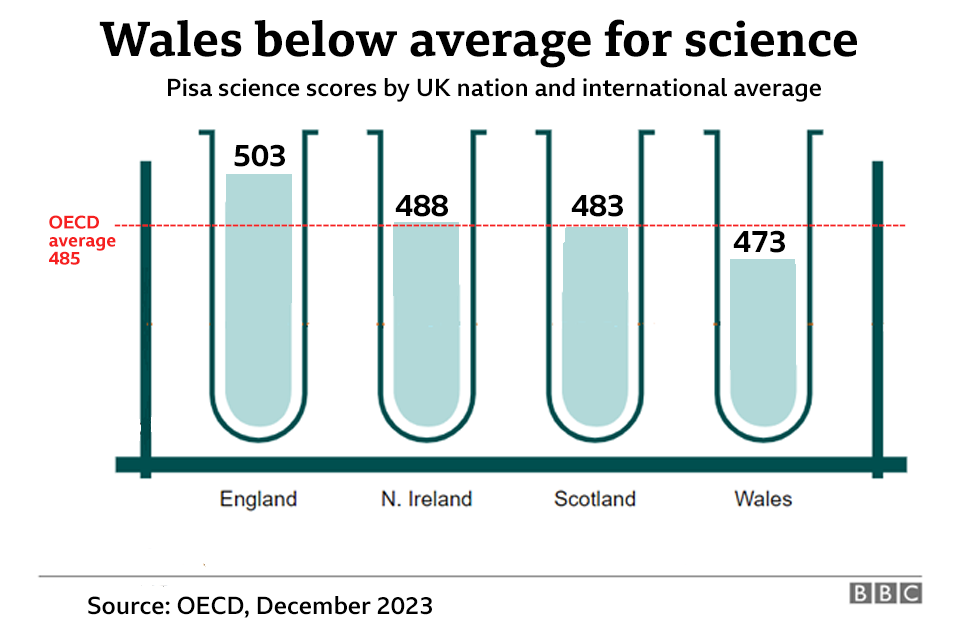
Andreas Schleicher, who is in charge of Pisa (Programme for International Student Assessment) at the OECD said that the results gave policy makers in Wales "food for thought about what to do differently."
"It's not just that Wales is the lowest performing region in the UK but it's also the one with the steepest decline," Mr Schleicher said.
He said England's results had held up the best of all the UK nations.
"Wales ranks much lower," he said. "Wales is more comparable to a country like Malta than top performing education systems."
Speaking before the 2022 test results were revealed, Eithne Hughes, director of the Association of School and College Leaders Cymru, warned that they should not be seen as "the test of the totality of a nation's education output".
She said different education systems, cultures and socioeconomic conditions made it difficult to compare countries.
Ms Hughes warned against more reforms as a reaction "to any bad news".
"We have got a bloated portfolio of reforms, and we have other problems that we need to deal with rather than the beauty pageant of the Pisa results," she said.
What are Pisa tests?
The main tests are in maths, reading and science and are usually run every three years by the OECD.
Tests take about two hours and all are done on computer. In 2022, they were taken by 690,000 15-year-old pupils in 81 countries and regions.
Pupils are also asked to complete a survey with questions about wellbeing and other factors that may influence education.
Wales and Pisa
Wales took part in Pisa for the first time in 2006. Results in 2010 saw Wales slip below average performance in all three subject areas and were described by the then-education minister as "unacceptable" and "alarming".
The 2018 results brought some improvements but Wales still lagged behind other parts of the UK.
The tests in 2022 were taken by 2,568 learners in 89 schools in Wales.
When the overall picture is looked at, Wales ranks in the mid-table range amongst the 150 different nations and regions who took part.
In maths, boys significantly outperformed girls while girls did better at reading.
What has the Welsh government said?
The Welsh government said there would be a "renewed national focus" on reading, numeracy and science.
"We have already started on a path of driving up standards in reading and maths and we won't let these results knock us off track," said Education Minister Jeremy Miles.
He said long-term reforms, including the new Curriculum for Wales were being rolled out.
"We have taken a once-in-a-generation opportunity to revolutionise the quality of education in Wales and I'm confident we will deliver huge benefits for our young people," Mr Miles added.

Erin and Sioned say the tests asked them to apply their GCSE education to real world scenarios
What do the pupils think?
It is a year since the pupils of Ysgol Bro Myrddin in Carmarthen took the test, but they said the Pisa tests were different to what they were learning for the GCSEs they took later that school year.
Speaking before the results were announced, Sioned, now 16, said that while there was a lot that was similar to GCSEs, there was a lot that "was different".
"Some parts of it were tricky, but some of it was interesting," she said.
"It's like numeracy. So just using that information we know and using it in real life scenarios, which we don't normally do in lessons that much.
"There were a lot of questions in the test I hadn't seen in an exam paper before."
The pupils did not revise specifically for the test, as they were due to have their mock GCSE exams soon afterwards.
Erin, also 16, said there were advantages to that.
"I think it helps a lot when we get into the real world and actually have to use the skills that we did in the Pisa test to see where we'll be at when we have to do that in real life," she added.
What else do the tests tell us?
Pupils who take part were also asked about wellbeing and they reported slightly lower levels of life satisfaction than the average across the OECD.
Scores fell in one or more subjects in most countries taking part in Pisa but Mr Schleicher had warned earlier against "attributing too much to the pandemic".
"Countries that kept their schools open for longer generally did better," he said, but that did not apply in all cases.
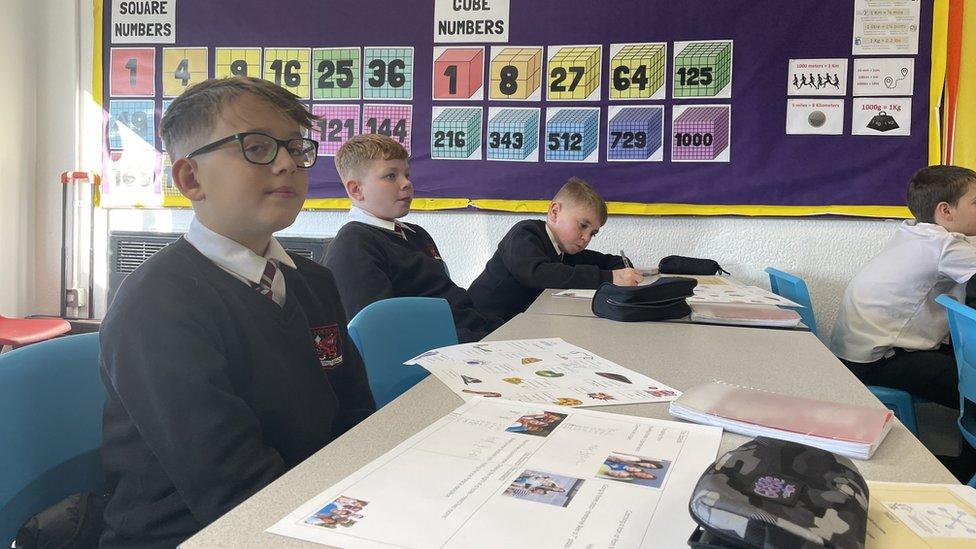
A year seven maths lesson at Coedcae School in Llanelli
What are schools doing?
Tracy Senchal, headteacher at Coedcae School in Llanelli, Carmarthenshire, said before the results that Pisa was "just one measure" of education, and factors such as pupil wellbeing should also be taken into account.
But learning from the support given to teachers in a top performing system such as Singapore was useful.
She said schools had already put measures in place to boost standards in reading and numeracy.
Pisa may confirm some of the things we already know, but I don't think it's going to necessarily change the direction of travel
At Coedcae, they have made sure staff outside the maths department are trained to help develop pupils' numeracy skills.
They are also offering the opportunity for parents and carers to study for a financial literacy qualification.
"It helps to improve their numeracy as well as to support during this difficult time of managing household finances," Ms Senchal said.
She added: "Pisa may confirm some of the things we already know, but I don't think it's going to necessarily change the direction of travel and I think it's important that we carry on with our plans as a country around the new curriculum and the reform of qualifications."
Ms Senchal said protecting school budgets was a key factor to make sure schools had the staffing and training to "drive up standards".
Meanwhile, Emma Forrest of the teaching union NEU in Wales said: "They don't really tell us anything which the education workforce doesn't know - that across most OECD countries schools need support in the context of a post-pandemic situation.
"Comparison is difficult. We are particularly concerned that these results do not represent the full cohort of learners in many of the countries represented. Whilst this is understandable, in the context of the pandemic, it makes comparisons less meaningful."
Conservative education spokeswoman Laura Anne Jones said: "The results today are not a shock when we have a Labour government which has so little regard for our children's future that they actually cut the education budget this year. All governments should be giving pupils and teachers the tools to do their best and thrive."
Plaid Cymru's education spokeswoman Heledd Fychan said the results were a "wake up call."
She added: "Despite the hard work and dedication of an overstretched workforce, the pupil attainment gap is widening and we cannot ignore the link between poverty and today's disappointing results."

ROBOT HELPER, ROBOT FRIEND?: The implications of AI's growing involvement in our lives
DEATH OF A CODEBREAKER: The man found naked & dead inside a bag

Related topics
- Published5 December 2023
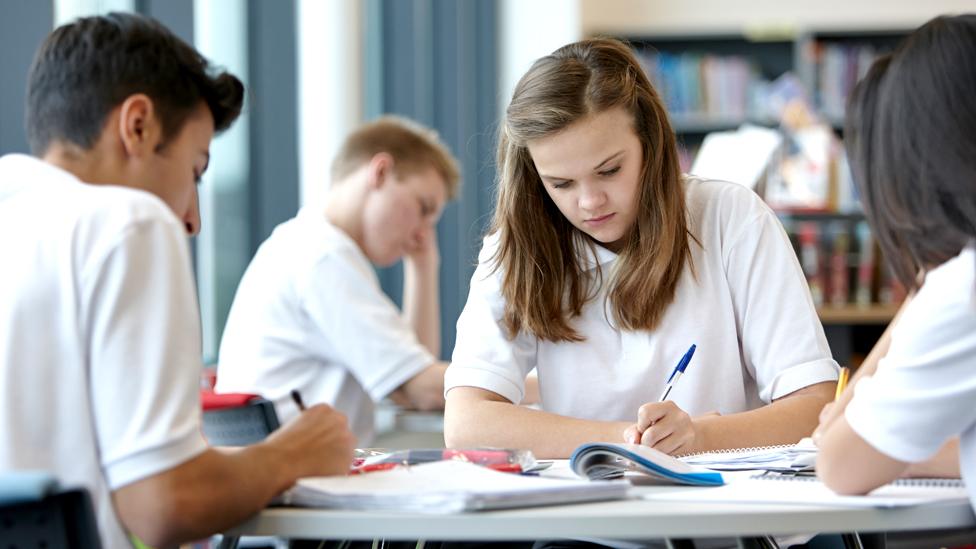
- Published3 December 2019
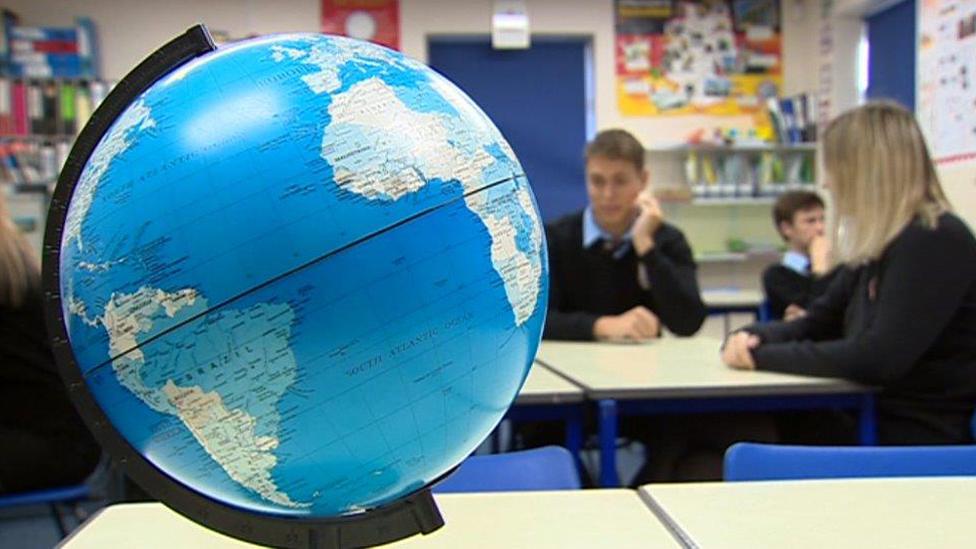
- Published1 December 2019
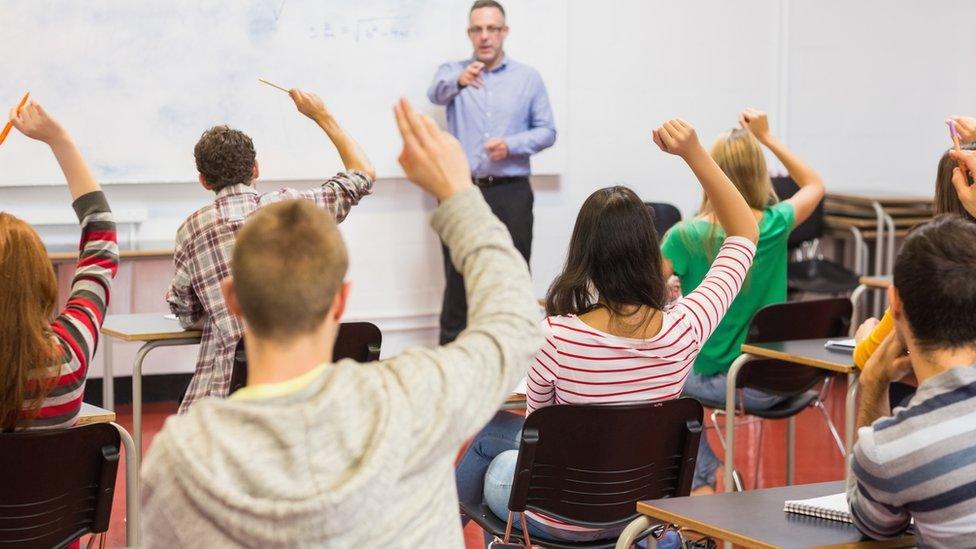
- Published5 December 2023
